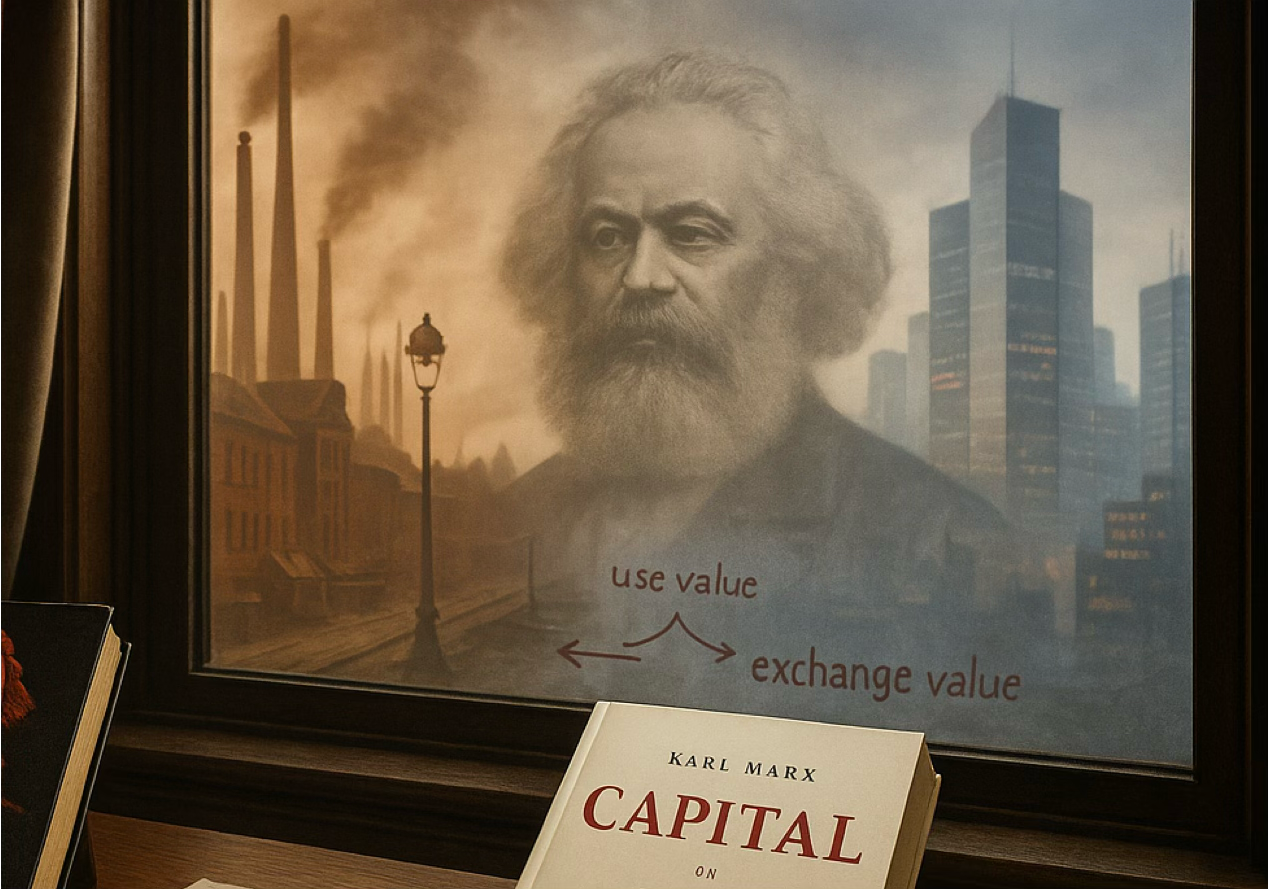Value-Thing, Not Vibes: Defending Reitter’s Translation of Marx (& Brown's Introduction) Against Troglodyte Loyalists
What the point of an introduction is: to get you to the book. Brown’s concise roadmap versus Mandel’s interminable self-centered polemic. Clarity matters more than sectarian score-settling. And the point of a translation and an introduction is to translate and situate a book, not to create a new version of a 100%-correct religious totem for today. Preserve the working of Marx’s intellectual and analytical gears, restore his strangeness, and so sharpen the potential focuses of productive critique…
Marx, Karl. [1867] 2024. Capital: A Critique of Political Economy, vol. 1. Trans. Paul Reitter, ed. Paul North, fore. Wendy Brown, after. William Clare Roberts. Princeton: Princeton University Press. <https://press.princeton.edu/books/hardcover/9780691190075/capital>.
Paul Reitter undertook the labor of giving us a new English translation of Karl Marx’s Capital: A Critique of Political Economy (if only of volume 1). I liked it.
I very much liked it.
This was, I think, worth doing. Previous translations aimed not so much as translating the book as a political-economic meme source that could spark a social movement, a social movement that would do for its day what Capital did back in western Europe over 1867-1914. What did Capital do in its own day back then? It became a holy totem for the apocalyptic cult that became the world religion that was the inevitable-revolution wing of the 1889-1914 social movement that was Second International Socialism.
By contrast, Reitter’s translation is from the perspective of trying to give a good translation of the book actually written by Karl Marx, nineteenth-century intellectual, alternately German-style neo-Hegelian philosopher, French-style revolutionary political activist, British-style classical economist, and apocalyptic prophet of one of the stranger versions of the New Jerusalem. Thus I was pleased with Paul Reitter’s taking on the task.
Now, however, a correspondent sends me to Ben Burgis of the Jacobin affinity. And Burgis now comes to slag it. In particular, he slags the introduction by Wendy Brown in a drive-by. God knows why he thinks this is a thing to do, or thinks this is a thing that will somehow burnish his reputation:
Ben Burgis: In Defense of the Fowkes Translation of Marx’s Capital <https://benburgis.substack.com/p/in-defense-of-the-fowkes-translation>: ‘The introduction to the Penguin edition was written by Ernest Mandel. The introduction to the Princeton edition was written by Wendy Brown. I don’t always agree with Mandel, but he’s a serious Marxist thinker. Brown is not. To say that isn’t to insult or dismiss Brown. She’s an interesting and often insightful theorist, and Marxism is definitely somewhere in the mix of her influences. But, she’s just not as focused on Marx as Mandel is, and it shows…
That is all he says about Brown’s intro. It’s a drive-by. It’s unfair—to Brown and to Reitter. I see Brown’s introduction as useful and effective. And so I let myself get sucked into Twitter defending what Wendy Brown was trying to do and did in her introduction. Probably a mistake. But I did it. And so I am going to collect what I wrote, and extend it a little.
To begin, I see Reitter’s translation as quite successful:
It aims for precision, readability, and philosophic fidelity, and I think it succeeds.
The translation restores Marx’s neologisms and sharp conceptual vocabulary (e.g., “value‑thing,” “value‑objecthood”).
It thus makes it plain that the text is meant to sound strange, to, as Reitter says, underscore how “capitalism makes people’s relationships “extremely unnatural and incompatible with human flourishing”.
It modernizes cadence without sacrificing precision—and this is a great help adding clarity on chapters like “original accumulation” (instead of “primitive”).
It provides a lot of very useful notes.
Is it a better translation? Here we need to get into the weeds of George Steiner (1975) and figure out how a good translation balances fidelity and renewal, and what kind of fidelity, and what kind of renewal. And that is above my pay grade. Devin Goure thinks that Burgis’s energy comes precisely from the fact that he believes that translators should not translate the book that Marx wrote, that:
Devin Goure: <twitter.com/DevinGour…>: ‘much of the subtext… [is] about Western academics domesticating Marx… that we shouldn’t want non-Marxist academics [here] … attached to a…less plausible claim that we need to de-philosophize Marx… that working class people shouldn’t concern themselves with such details…. There’s an implicit turf war over the role of academic political theory/social theory in interpreting Marx going on… that 1) I don’t think helps anyone, certainly not the working class, and 2) that the author of the post is being evasive about…
He may be right.
Do note that Burgis’s strong negative judgment is exceptional. And do note that the general judgment is that Reitter is quite successful. His translation has drawn strong praise for philological rigor and readability, with major reviews noting the apparatus and conceptual fidelity. I do endorse Jim Miller’s praise of it and its:
Jim Miller: Karl Marx, Weirder than Ever <https://www.nytimes.com/2024/09/19/books/review/capital-volume-one-karl-marx.html>: ‘erudite critical apparatus… exacting translation… remarkable achievement… readers… [can] attend to the philosophical subtleties of Marx’s argument…
But let me now focus on Wendy Brown’s intro. But let me put it here for those who want, for some reason, to become like me in knowing too much about the apocalyptic western Marxism cults of the 19xx years. I will pull it back above the paywall in a week or so: I am right now starting to experiment what to do with this SubStack, after all:

